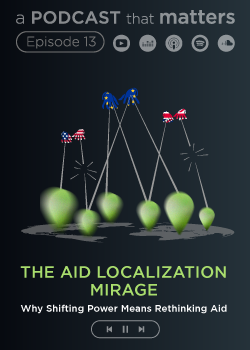Print

Erasmus Mundus Master in Global Studies - A European Perspective
Details
Locations:Australia, Austria, Belgium, China, Denmark, Ethiopia, Germany, India, Poland, South Africa, UK
Start Date:Oct 1, 2019
End Date:Sep 30, 2024
Contract value: EUR 3,848,000
Sectors: Education
Categories:Grants
Funding Agencies:
Date posted:Aug 19, 2019
Description
Call reference: EAC/A03/2018
Programme: Erasmus+
Key Action: Learning Mobility of Individuals
Action Type: Erasmus Mundus Joint Master Degrees
Project Reference: 610548-EPP-1-2019-1-DE-EPPKA1-JMD-MOB
Action title: Erasmus Mundus Master in Global Studies - A European Perspective
Summary
Description: During the last two decades of the 20th century transnational intertwining increased as the significance of global problems rapidly gained importance. This process is commonly termed 'globalisation'. As a result of an increasing lack of balance with regard to the prospects of independent action, social, political and cultural strategies altered dramatically. These strategies have given rise to a discussion concerning the most suitable paradigms with which to analyse global processes. The Global Studies programme, despite its various approaches and their necessary combinations, takes global connections as a starting point for the understanding of globalisation. It views globalisation: 1. Not only as a phenomenon of past decades but which requires a greater historical perspective. 2. Not merely as economic processes and their social consequences but also investigates the political and cultural strategies to cope with the dialectics of deterrotialisation and reterritorialisation. 3. Not only as a process of global homogenisation but at the same time as a process of differentiation based upon findings from Area Studies. 4. Not as an objectively given phenomenon but rather a bundle of interpretations, depending from perspectives and intellectual environments. The programme aims at qualifying excellent students to deal responsibly and on an advanced scientific level with the various aspects of “globalisation” and its accompanying processes on the basis of findings, theories and methods from the Humanities and Social Science with a strong emphasis on historical analysis. Depending on the mobility track it is possible to specialise in particular areas of globalisation research e.g. historical as well as comparative analysis of global entanglements, methods of global history, economic and social history of globalisation, global political economy, global governance, analysis of transformation processes in Central and Eastern Europe and development studies. Upon completion of this researched based Master’s, students qualify for PhD studies and for a variety of job opportunities in practice e.g. in cross-national and supranational agencies, NGOs, as intercultural mediator or in the field of development cooperation, economy and management

